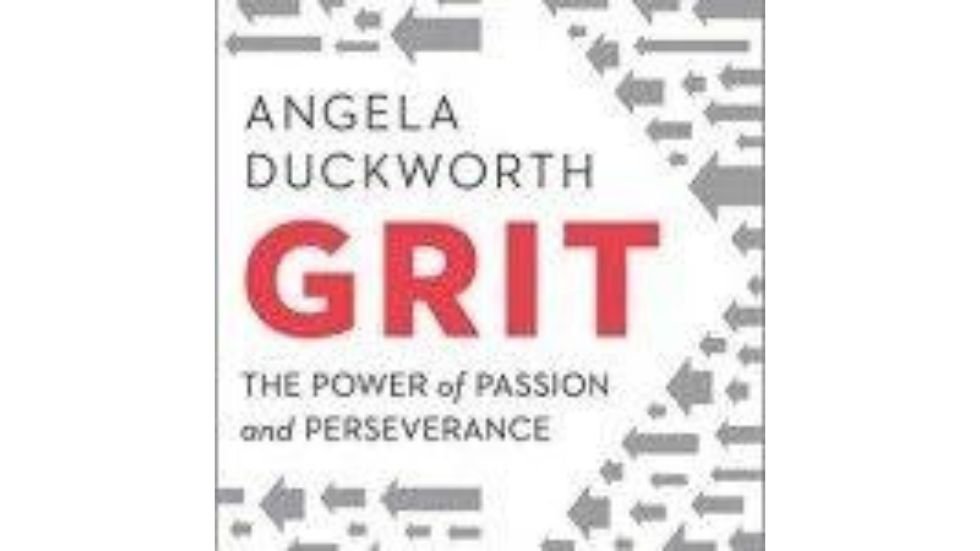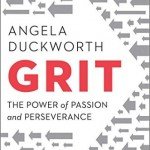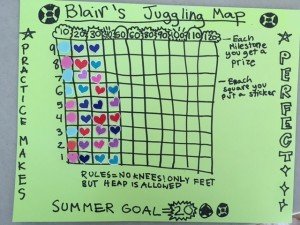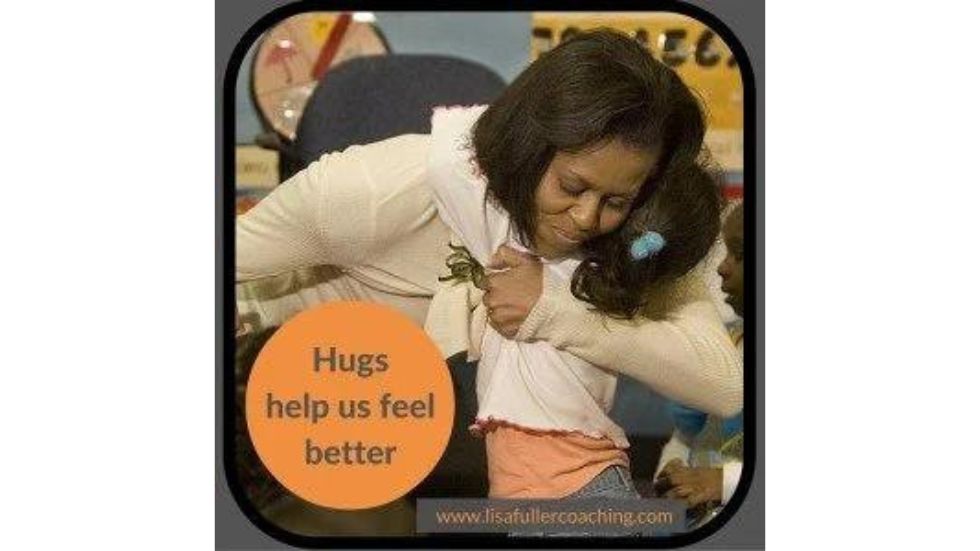
by Lisa Fuller | Apr 4, 2017 | General
Being a parent brings up loads of baggage — memories, judgments, regrets, and even feelings of shame. We project these feelings and others- our neighbor, sibling, and or spouse. We get distracted by the thought that we — or they — just aren’t doing it RIGHT.
I’m here to say it’s a load of horse$@*! You can direct your energy somewhere else because we’re all going through the muck of parenting: struggling with our children’s behavior and our very human reactions. While our challenges come in different shapes and sizes, we all have them or have had them over the course of our parenting lives.
For example, we may react/judge/project when the following happens…
- my daughter refuses to walk to school with our neighbor and her longtime friend,
- my son finds a sharpie in the car and decides to “decorate” the interior,
- my daughter runs circles around me every night and won’t go to bed,
- my middle schooler screams, “I hate you” when I ask her to clean her room,
- my kindergartner ‘moons’ his classmates during a music lesson.
This is the stuff of life. This is the stuff of parenting. And the good news is that most of these seemingly unbearable moments will pass.
When you share your parenting struggles with me, I offer my empathy and support. Internally, I usually smile because I feel confident that one day this struggle will become something you’ll find humor in. You will move on and your kids will grown out of the stage (could be 6 hours, 6 months or years) that seemed so awful when you were in. The unbearable can become a tender memory.
We’re human. We all go through growing pains in one way or another.
Whether it’s a bear hunt or parenting (what’s the difference?), it’s true: Can’t go over it, can’t go under it, we gotta go through it.
The pattern of human and child development is not in one direction: it’s a spiral. One direction would be constant motion towards improvement. A spiral is a corkscrew pattern, a back and forth, equilibrium followed by disequilibrium.
Normal Development Can…
- Be sporadic and inconsistent
- “Appear” to have setbacks
- Include negative and positive behaviors, both of which help the child grow and develop
Each age has a predictable personality all its own.
Click here for a list of typical developmental characteristics for ages 6 months to 16 years. Please note: This site describes average behaviors for each age level. If your child’s behavior doesn’t fit a particular stage, not to worry, it may be coming or have passed. Or maybe it happened so quickly, you didn’t even notice it. Some kids travel through the stages more smoothly while others take a more jagged route.
The good news? It’s all ‘normal.’
For example, let’s look at our ‘mooning’ kindergartner and how his behavior lines up with what’s ‘typical’ for a 5 ½ year old. According to the Gessell Institute, during this period kids are likely to be….
- Disequilibrium
- Brash, combative, argumentative
- Can’t make up their minds
- Need consistent rules
- Extremely emotional; emotions can fluctuate to opposite extremes
- Complains a lot
- Shows initiative and tries things – often unsuccessfully
- When speaking, elaborates more than 5 yr. old did
- Is the center of his world – has not yet developed a secure sense of self
- Mom has moved into second place – gets blamed for everything that goes wrong
- More restless, less motor control
- Confusion in spatial orientation, peak age for reversals
So mooning is ok?
Looking at this list, can we see the mooning as a not that weird or unexpected after all? Maybe it doesn’t even merit a big response since we know that our usually quiet little boy is capable of being unpredictable, brash or aggressive without warning.
When we keep the developmental perspective in mind, it gets pretty simple. These ‘bad’ behaviors can feel huge, overwhelming and complicated and our first urge is to react. But maybe they’re a clue that your child is just where he needs to be. Maybe, knowing about development we have room to respond with peace, humor, compassion, and…relief.
Maybe our child is right on track and doing exactly what his or her developmental stage dictates.
I just took a deep breath. I hope you did, too.
Your assignment….
- Visit this development resource.
- Do these typical behaviors ring true to you?
- Report back in the comment section below with a story of your child’s typical behavior or simply share what you learned by checking out the list.
Feeling relieved? I hope so
I believe we could change the world if we all understood that we go through stages of equilibrium and disequilibrium throughout our lives. It’s helpful to talk about what’s tough and also typical behavior for children at various ages.
By the way, it was my kid who mooned his classmates and while I was a bit shocked at the time, I’m happy to report that he hasn’t become a serial mooner. We chuckle a lot over that story now 🙂

by Lisa Fuller | Nov 16, 2016 | General, Motivation, Parenting
It was the end of our summer time together.
My sister and I had a van FULL of kids, hers, mine and our brothers’, parked in my grandmother’s driveway.
Over the years it had gotten progressively harder for me to say goodbye to my grandmother. Each year I wondered if this would be the last time I’d see her.
This year she was 99, standing in front of her cottage, coming out to watch our precious cargo get settled into the rented van. She stood there — old but not fragile — soft, but also solid as a tree. The most beautiful woman in the world.
I approached her, her arms wide open — mine open to meet her — oh Granny, thank you for everything… this is goodbye until next summer. Tears welling in our eyes. A hug that I never wanted to end.
But then the clammering in the car called to me, reminding me of the long journey ahead from Maine to the ferry in New London Connecticut to finally Long Island.
We released each other, I scrambled into the driver’s seat, feeling relief in the obvious distraction of all these kids needing me. The clear responsibility in front of me served to keep me moving.
Backing out of her short driveway, I rolled down the windows and we all cheered Bye Granny. She raised her arm in a fist and shouted, “COURAGE!”
Pulling away, I was stunned, my breath hard to catch… How did she always know exactly what to say? … Courage!?
That one word said it all in that moment. On one level my sister and I would need obvious courage to face the ten hour drive ahead with the car full of excited and soon-to-be-exhausted kids.
But Granny also knew that I’d need courage to leave her. And that she’d need courage to say goodbye to this car teaming with life, love and respect for her.
That realization pierced my heart and took my breath away.
She might also have meant the courage she mustered everyday being an ancient person in a world that valued the shiny and new. The courage to face the day without all of her many dear friends who’d died over the last 10 years. The courage to face each day with deep curiosity, interest in and love for her family and the broader community whom admired and loved her.
I haven’t spent much of my life considering courage in personal terms. I reserve it as a label for those serving in war, putting out fires, or responding to other of life’s emergencies.
But then there’s my sage Grandmother declaring what is also real: the everyday ways we face life with courage or that life requires courage of us.
I’ll never forget when my first son was born. Holding the warmth and deliciousness of him in my arms only hours after he arrived, I was in awe.
What had I gotten myself into? Looking down at him, I knew that my life would never be the same. And not in the over-used cliche way, but in the most substantial way. The way most parents — if they’re lucky — come to understand their new responsibilities.
My life was no longer about me. I now had the impossible task of keeping another human safe at every turn. How could I bear the pain of him being hurt, physically or otherwise? He was the most precious person and it would be my job to keep him safe. I knew I’d jump in front of a bus, no second thoughts, to protect this new being in my arms.
At the time, I didn’t connect this with courage. But now, jumping in front of a bus sounds like that huge kind of courage reserved for heros.
Of course, we can’t sustain the level of awareness I had that day in the hospital, but it’s still there — just under the surface — fear mixed with courage. And it’s what gets us through everyday of our parenting journey.
“Choosing courage does not mean that we’re unafraid, it means that we are brave enough to love despite the fear and uncertainty.” Brene Brown
What if we claimed this courage, not in a braggadocious way, but rather as a deep knowing that life’s most meaningful choices take courage?
I’m curious if and how this would change my feeling of agency, of possibility for myself as a parent.
Rather than just rolling out of the driveway, pushing down the fragility that is life, we instead back up and hear “courage” for what’s at hand. We listen to a child’s fear and loneliness. We stay present with a friend as they describe their teenage son spinning out of control. We visit with a drug addicted mom in the hospital as she holds her newborn. Or we accompany a friend to her chemo appointment.
I’m grateful, so grateful that my grandmother declared “courage” that day even though the naming of it hurt.
Courage is our action amidst a poignant awareness of the fragility of life.

by Lisa Fuller | Jun 11, 2016 | Encouragement, General, Motivation, Mutual Respect, Parenting
by Victoria Thorp
 In recent weeks, a new book called “Grit,” by Dr. Angela Duckworth has made quite a splash, with coverage in news outlets from CBS News to NPR to the New York Times (even David Brooks loved it).
In recent weeks, a new book called “Grit,” by Dr. Angela Duckworth has made quite a splash, with coverage in news outlets from CBS News to NPR to the New York Times (even David Brooks loved it).
Maybe you’ve read these stories or perhaps bought a copy of the book yourself. Or maybe, because it’s spring and you can barely manage the onslaught of graduations, science fair projects and final exams, you’ve been in a media blackout. Either way, I have good news: this post will explain what ‘grit’ means and why it matters to you as a parent.

Angela and I in San Francisco, May 2016
Full disclosure: Dr. Duckworth is a friend and former colleague of mine, so I’m not new to the topic of grit, nor am I fully objective about Angela. But here’s the thing about Angela: besides winning a MacArthur ‘genius’ grant and working as psychology professor at the University of Pennsylvania, she’s also the mom of two middle school girls.
And I know from a recent conversation with Angela that she’s just as humbled by the challenges of parenting as we are, despite a best-selling book and her professional success.
Here’s my attempt to boil down her brilliant book into one page…
What does ‘grit’ mean?
Dr. Duckworth (hereafter to be described as Angela) defines ‘grit’ as a combination of passion, effort, and persistence applied toward a goal over a prolonged period of time.
Why does grit matter?
According to Angela’s extensive research, grit appears to be a strong predictor of life-long success and happiness — perhaps more so than innate talent or IQ. “Our potential is one thing,” she writes. “What we do with it is quite another.”
As a parent, I appreciate this definition because it breaks down the ‘talent myth’ that seems to dominate our popular understanding of why people are able to accomplish their goals. Whether it’s looking at athletes, artists, or even entrepreneurs, stories of victories and accomplishments are usually told as if these winners were born with a particular gift that made their dominance inevitable .
What’s different about grit?
Angela’s explanation of grit provides another narrative for understanding these stories, too. One that examines the persistence that these champions applied towards their goals, their ability to not give up even in the face of failure, and the specific, difficult and prolonged practice they applied to the craft/sport/skill they were trying to improve.
Here in the Bay Area, Steph Curry is the most famous example of an athlete who wasn’t considered to have much potential as a youngster, but who’s risen to the top of the game through his determination, endless practice, and dedication.
So how can we find our passion (or help our kids find theirs)?

Never discount the power of the chart to motivate kids to reach a goal- especially charts they make themselves (note that goal has yet to be met but working on it!)
At least where I live (Palo Alto, California, U.S.A.), passion is the newest element that kids are supposed to add to their dazzling college resumes. It’s not enough to have great grades and do varsity sports, now teens are supposed to also have a “passion,” whether it’s global warming or raising foster dogs.
That’s why I loved the part of Angela’s book where she explains in detail what it means to have a passion and explores exactly how people stumble upon the “thing” that they end up pursuing with so much grit.
Angela has some experience with trying to find a passion because she spent time as a neurology grad student, management consultant, high school teacher, and tech COO before realizing that her true path lay in the study of psychology (she entered the PhD program at Penn when she was pregnant with her first daughter).
Why it’s hard to find a passion
Some people may realize like a bolt of lightening that they want to study sharks or cure childhood obesity, but most of us won’t have the luxury of this sort of epiphany.
We’re more likely to figure out what we love through multiple exposures and prolonged engagement with something that we might ‘sort of’ like or be ‘kind of’ interested in.
In fact, it may take longer than you’d imagine before you realize what it is that you must pursue.
The reason it takes so long is because of how our brains work.
When people are bored, they know right away. Researchers can ask people if they’re bored when doing a task and they will be very clear if the answer is yes.
It’s much harder to ascertain if a person is truly interested in a task.
When researchers ask people, “Are you interested in what you’re doing?” the answer is often, “Not really.” But these same people will manifest behavior that looks a lot like interest — continuing to do the task, not wanting to break away from it, etc.
It takes lots of exposure to something for kids to develop an interest in it…
For parents, this means that we have to keep exposing our kids — over and over again — to activities, ideas, and pursuits that they may not express a ton of interest in.
Sounds hard, right? Likely it’s a process we’re all familiar with at the dinner table. You’re tempted to never make broccoli again after your kids reject it a few times. But you know their tastes keep changing and experts recommend that you bring back foods that were previously rejected or your kids will eat nothing but white rice for the rest of their lives.
So when it comes to interests and passions, it’s most beneficial to our kids if we give them multiple exposures to a variety of different pursuits … that we not have a fixed mindset about what may interest them as they grow and change.
So if kids try lots of things and quit, what then?

This photo links to Angela’s TED Talk
Angela has a rule in her house — never quit on a rainy day. In other words, never quit because of having to play in bad weather or striking out, or experiencing some other adverse situation.
Instead, encourage your kids to get through the season and to not quit until there’s a natural stopping place (could be the last session you paid for, etc.)
What if kids have a passion for something that you find less than inspiring?
From Minecraft to marijuana legalization, kids can get fixated on pursuing interests that feel less than ideal. So what to do?
That’s a tough one and Angela has not addressed it directly. But she does have another rule in her house I thought was a good: everyone has to do one ‘hard thing.’
On CBS news she said, choosing the ‘hard thing’ is not an open-ended question — it’s multiple choice.
While her teen girls might be passionate about Instagram, Angela is clear that they can’t choose that as their ‘hard thing.’ Instead, it has to be a sport or musical instrument.
Sports or musical instruments may not be right for your family, but the idea is to encourage your kids to pick something they have enough interest in to pursue and get them to stick with it long enough to make progress.
Can grit be taught or is it just a trait you’re born with?
There’s a lot of debate about this question. Angela gives some ideas for how to ‘grow grit’ but they are more anecdotal, perhaps because the research here is a bit less clear.
I have two girls and one is definitely more naturally gritty in the way Angela defines it. She sets goals and tends to stick to them, and loves to practice and get better — she’s inspired to improve (flute and soccer are her main areas of focus).
My other daughter has lots of big ideas, but often abandons her plans before they’re fully realized, and isn’t particularly driven to practice. So my tiny data set would lead me to the conclusion that there is some innate element to grit.
While you can’t teach your kids to have innate drive, by setting clear expectations around commitment and practice, you increase the likelihood that they’ll experience the relationship between effort, time and progress.

My daughter worked for a year to over come her fear of running hurtles.
My less gritty daughter’s found a track program that she loves. She’s kept running for several years. She’s motivated to train with her team; and while she doesn’t do much practice on her own, she’s made noticeable improvement. The findings in Grit support the idea that sustained practice is best done with a coach — and that it’s tough to independently figure out where and how to improve.
I have no idea if my girls will pursue these interests for their whole lives, but I’m trying to encourage them to keep going long enough to feel competent, as I do believe competence builds confidence. And you can’t get to competence without putting in the time.
One big thing that ‘gritty’ people have: purpose
And finally, one of the most compelling parts of Angela’s exploration of grit is the connection she makes to purpose.
From her many conversations with gritty people, she discovered that beyond perseverance, persistence, and prolonged practice, they all shared a belief that what they do is important, valuable or makes a difference in the world in some way.
This was true for musicians, athletes, business people, and even one sanitation worker she interviewed. And she has some great tips for trying to find purpose. (Read the book!)
So now you’re wondering…how gritty are you?
You can take the ‘grit scale’ and find out how you rank on Angela’s assessment.
I’m in the mid range in terms of grit — I bounce around from interest to interest and have never had a laser focus on one thing. It’s a good personality for a writer! But reading Angela’s book gave me new inspiration to look hard at the things I dabble in and try and commit more deeply so I can continue to grow and learn. Even an old dog can get gritty…or so I’d like to believe!
Are you getting gritty with your kids? Or skeptical that grit is yet another parenting fad? Post a comment and let us know!
Victoria is the founder of Palo Alto Pulse, a website that shines a light on the people and ideas that make Palo Alto such a cool place to live. She is also a senior contributing writer for the Doris and Donald Fisher Fund in San Francisco, where she supports the work of KIPP charter schools and other innovative educational organizations. Victoria lives in Palo Alto with her two teenage daughters, her husband and, the grittiest member of her family, her dog Abby.

by Lisa Fuller | Mar 26, 2016 | Communication, Connection & Love, Encouragement, General, Parenting, Self-regulation
Shortly after Eric finished up my 7- week parenting series, he sent me this story which beautifully illustrates the power of asking for a hug.
Last week on my way home from work, my wife Stephanie sent me a text that our daughter Grace (5) was being a handful, was in a horrible mood and that she had had it with her.
When I got home, I walked into the house and went straight to Grace and asked her for a hug. At first she turned her back and crossed her arms, and said no.
I then decided to ask her one more time and after a 5-second pause, she turned and gave me a big hug.
Steph said it was like someone flipped a switch on Grace. She went from being in the worst mood to acting as if she was having the best day ever.
It’s amazing to see the kind of impact and dynamics that something as simple as asking for a hug can have on a 5 year old.
Honestly, before taking your class, I probably would have come home and punished Grace for misbehaving and the entire afternoon would have been ruined for the whole family.
Asking for a hug sounds almost too easy, right? Too simple to be true?
However, while it’s simple… there’s a subtle tweak that’s key to the effectiveness of this parenting strategy.
“I could use a hug” vs. “Can I give YOU a hug?”
The first taps into your child’s deep need for significance and belonging. When you ask for a hug from your child, you acknowledge that they make a difference to you and in fact have a positive influence on your life.
In the later, you are reinforcing what your child hears and perhaps feels frequently: That children need help from grownups to feel better.
The parenting tool of asking for a hug (for YOU) is simple, easy, and effective if done from the perspective of genuine connection, genuine desire for your child to assist you! (Plus, who doesn’t love hugs? I love it!)
Try it out.
Ask a friend to be your parent and say these two phrases to you:
Could you give me a hug?
and
You look like you could use a hug.
Do you notice a difference in how you feel after each?
This week look for an opportunity to ask your child for a hug.
I’d love to hear how it goes in the comments below!












